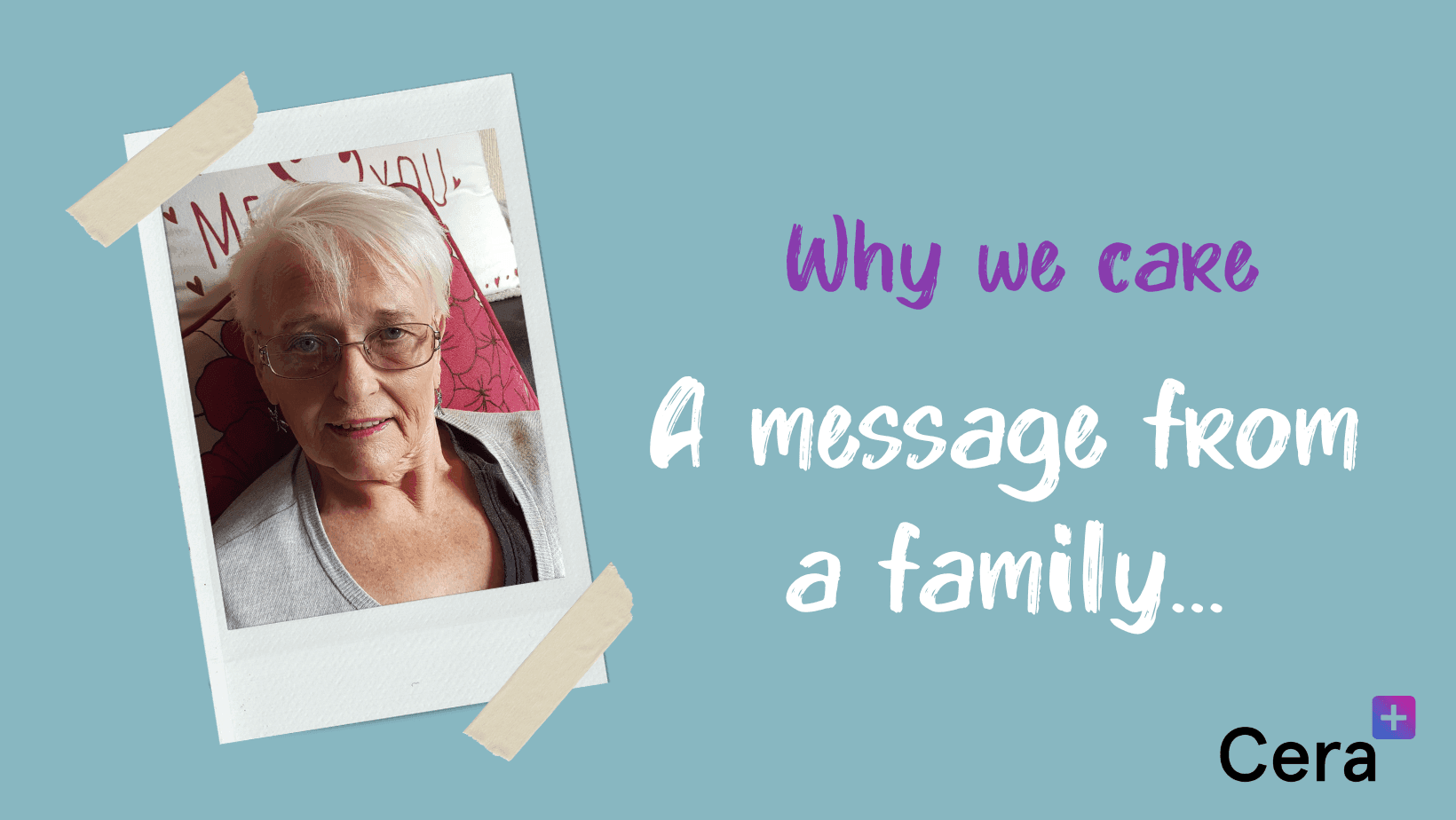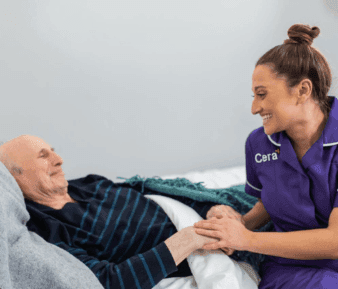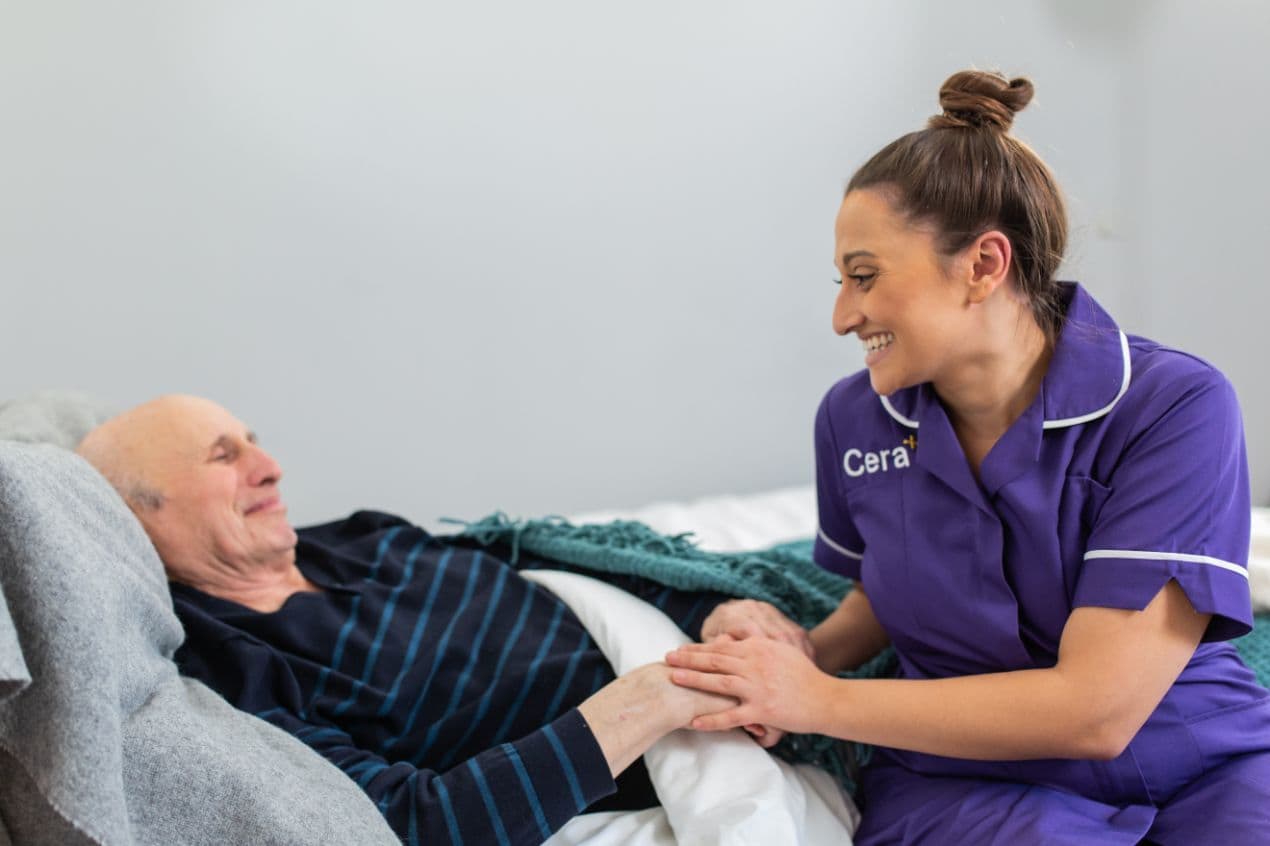5 things they don't tell you about caring for older people
Working with the elderly or infirm can come with its challenges. From getting to grips and understanding different people’s needs, to doing everyday tasks such as preparing lunch or tying their shoelaces, caring for older people is a job that requires dedication and perseverance.
What people don’t tell you about caring for older people is how amazing it can truly be! We have put together a few examples from carers themselves.
One
They don’t tell you that working in care can be a humbling experience, especially during a global pandemic.
'Even on the hardest days, someone will remind you exactly why you love what you do'
For example, when it comes to working with a service user you see regularly, the smallest things can make a huge difference to your day. Watching someone do something independently for the first time in a while, having a conversation about their childhood or even something as simple as seeing them smile. Your day can be turned around in seconds and leave you feeling positive and motivated.
Two
They don’t tell you that you and your service user can become friends. You can end up spending a good amount of time visiting the same people so getting to know them and the things they enjoy can be hugely rewarding. You might find out that you share common interests or you might even be able to teach each other a thing or two. We have heard that ‘smashing out Vera Lynn’ is highly likely… you might even learn to love it!
You might find it useful when heading to your visits to prepare a few conversation starters to help build rapport. They could be:
- What is the best advice you have ever received?
- What is something that has made you happy this week?
- What is your favourite memory?
Three
They don’t tell you that ‘older people’ doesn’t always mean old! Your service user can vary in age with some clients being around forty or fifty with conditions such as Multiple Sclerosis (MS) or Myalgic Encephalomyelitis (ME). Some might be into their nineties at their end of life care. It really just depends on who needs your help!
To put it into perspective, ‘there are over 42,000 people under 65 with dementia in the UK’ - alzheimers.org.uk
Take a look at our blog How to care for someone with dementia to find out more information on this type of diagnosis.
Four
They don’t tell you that you don’t need a background in care to work with older people as a Care Assistant. You need to be passionate and willing to learn but if this is a new career path for you, don’t worry, you will be trained on the job. Have a look at our blog How to Become a Care Assistant which has a section detailing what Care Assistant training looks like at Cera.
We also have a blog on How to Prepare a Great Care Assistant CV if you’re thinking about moving into the Social Care sector from something completely different.
Five
They don’t tell you ‘How satisfied you feel when taking those shoes off in the knowledge that everyone is tucked up safe for the night.’ Caring can be demanding both physically and mentally. When your day is finished and you finally retire to the sofa with a cup of tea, you’ll feel like a superhero.
And there we have it. The top 5 things they don’t tell you about caring for older people. We hope this was able to give a useful insight into some topics you may not have thought about!
More about working in care

Nutrition and Hydration - Essential Care for the Elderly
Good nutrition and hydration is vital for everyone, and it's especially important for elderly individuals.
Why we care - a message from a family
A family's note of thanks to the carers who provided comfort, dignity, and peace during their gran's final days.

